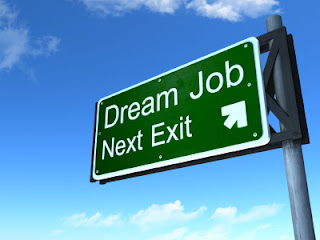As part of my role in business development, I meet a large
number of people. I do my best to remember names and backgrounds about
each person. Since I truly enjoy meeting and talking with people, I think
of my job more as fun than work. At a large
networking function just the other day, I ran into at least a half dozen people
that I had met in the last couple of years. Of
the six, there was one individual whose name I could not recall, but I
remembered the name of the school that his kids went to because it was the same
small school that I had gone to growing up in Dallas. He asked me how on
Earth I remembered that. I realize that a person’s sincerity makes a big
difference in how I view that person and whether or not I would choose to do
business with them, so I try to reflect that myself in my interactions with
others. Below is an article I read on a similar topic about a person’s
success in business being attributed to the kind of person that they
were. I found some valuable pointers in this that I think are worth
sharing.
 | ||
| Carolyn Murray, Director of Client Development |
Christina DesMarais
Feb 1, 2012How to Be the Most Memorable Person in the Room
Within the last few years two very special men in my life died. They weren’t family, I didn’t see them often, and they had lived long, fruitful lives. But when they were gone it suddenly seemed to me that the world was missing something big. And others felt this way too.
Both funerals were standing room only. Family members gave eulogies that would break your heart—the lives of these men made a big impression on the people around them. In both instances, I looked around and thought to myself, I want my funeral to be like this.
Elloyd and Kenneth had been accomplished entrepreneurs and later in life, angel investors. The former founded a financial transaction processing company that today competes with the biggest names in banking, in spite of it only having 130 or so employees. And the latter spent much of his life as an international executive for several large companies before starting his own business and selling it for a premium when he retired.
So what exactly did these two men do to make such a large impact on so many people? In business and in life, they knew how to deal with people. Here’s what they did, and what you can do, too:
Be interested in what’s going on in other people’s lives. There’s something endearing about a curious soul. How much do you know about the lives of your business associates and employees? You don’t need to pry, but expressing a genuine interest in what’s going on outside of work with people can go a long way in the level of influence you have with them.
Really listen. When’s the last time you spent time talking with someone who was fully present? Technology often gets in the way of this. If you want to make an impression on someone, silence your phone and hide it away.
Be authentic. I recently met an entrepreneur who had it all together but was disingenuous. Nothing could have turned me off faster. Before he died Kenneth wrote a missive chronicling much of his life and one of his daughters read it at his funeral. His posthumous candor was moving and reflective of how he interacted with people during life. He was authentic and everyone knew it, so it set him apart.
Set a good example. At Elloyd’s funeral one of his daughters read an e-mail she had received from an employee who had never met him (because he was retired by then). In the e-mail, the employee said she could tell by the way his children ran the company and treated their employees that he must have been a very good man to raise them up the way he did.
Be happy. It sounds so simple yet cheerfulness is a quality that eludes many. After retiring Kenneth and his wife would watch old TV shows while eating lunch. His frequent (and loud) laugh was infectious. And one of Elloyd’s daughters, a lifelong friend of mine and now head of sales for the company he started, took on her father’s positive attitude, which is something everyone who now works with her appreciates.
Be generous with your money and time. Both Elloyd and Kenneth donated generously to worthy causes and other entrepreneurs with funding and mentoring. While coaching a fledgling business into success can be time consuming, it’s an investment that will be long remembered. I hear from founders all the time who effusively express gratitude to the mentors who steered them when they most needed direction.
Stand up for what you believe in. Kenneth had no qualms about asking a neighboring table at the country club to stop cussing with his daughters in earshot. And Elloyd believed wholeheartedly in the American Dream, believing that with hard work, a good idea and solid coaching, anyone could succeed.
Image




